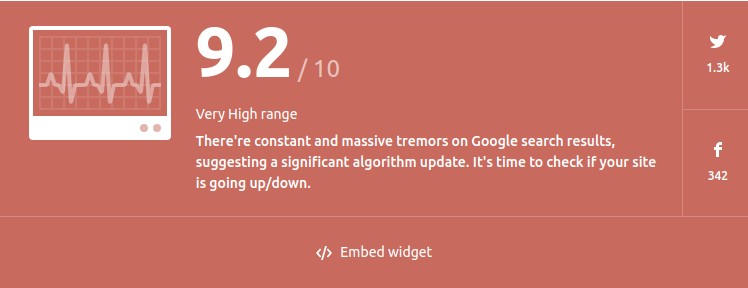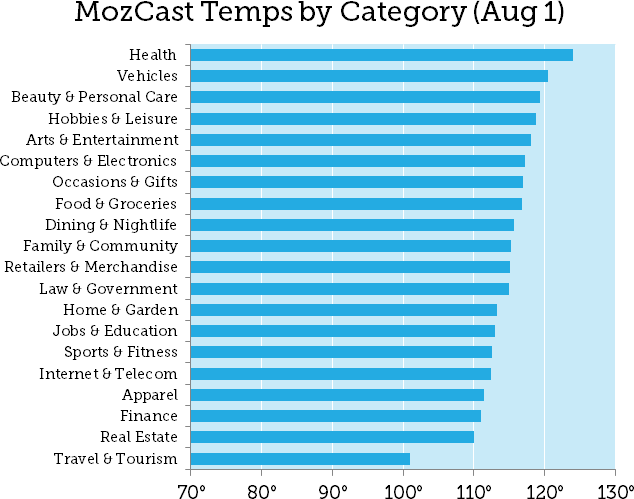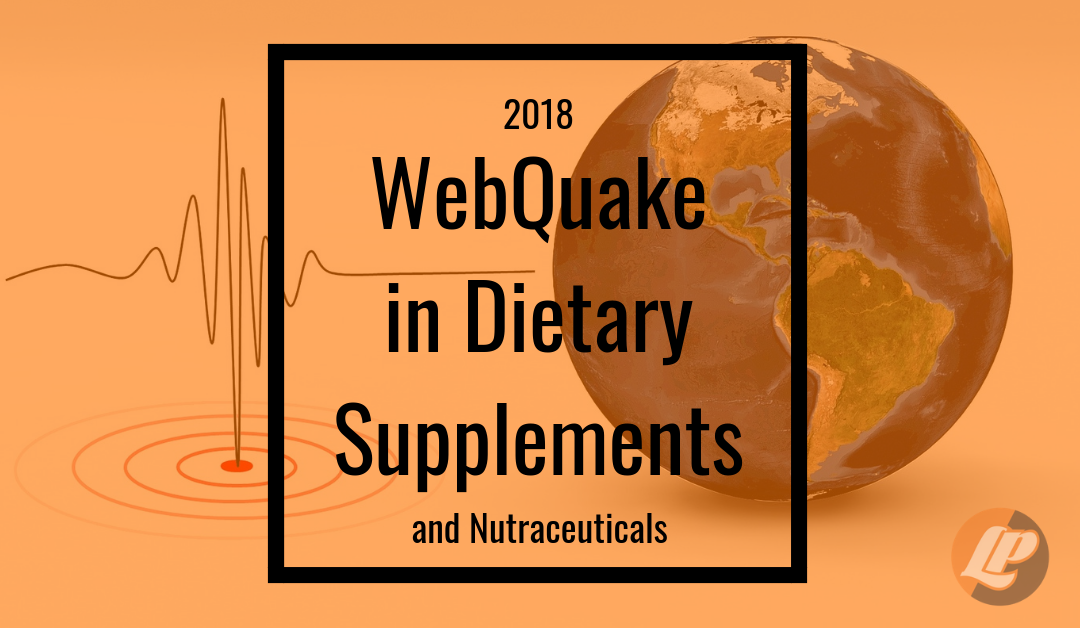August 1st, 2018 an earthquake hit the internet. Okay, so that might sound a little dramatic to some. For many involved in health, fitness, beauty, nutrition, supplements, and nutraceuticals it may have felt that way. By now, SEO professionals worth their salt should know what’s going on. Many of us were working on this less than a week after the change hit. Only now, those of us that were busy in the trenches can take a breath to write an article about it.

SEMrush Sensor measures SERP volatility
“Medic Core” Update
So what happened on August first? Google made a core algorithm update. Many search professionals are calling it the “Medic Core Update” based on the sites that seem disproportionately affected – though the change was for all searches. According to guru Barry Schwartz, health (and e-commerce) combined represents about half of the sites affected.
So which sites were most affected?
This chart from Moz tells a story about what types of sites were affected. It’s had a lot of circulation since then. The volatility in Search Engine Results Pages (SERP) means that there were losers and winners in the algorithm change.

What’s the common thread in these website categories?
The common denominator in these sites is they affect Your Money or Your Life (YMYL). Google holds these types of sites to a higher standard. This is graded in a score of Expertise, Authoritativeness, and Trust (EAT). These terms come from Google’s Search Quality Evaluator Guidelines. While these terms aren’t new, these guidelines were coincidentally updated last on July 20, 2018 – just days before the core algorithm change. Julia Spence-McCoy over at SEMrush does a good job explaining in 2016 what EAT and YMYL mean – it’s not worth reinventing the wheel.
What you need to know is that high-level advice affecting a person’s health, wealth or happiness is held to a higher EAT standard. Content should be written or reviewed by qualified (and often accredited) experts. This is the kind of stuff that the FDA or the SEC or FINRA would look at as medical or financial advice.
Quality Scoring Guide
The Search Quality Evaluator Guidelines Google publishes for human raters to help determine how good it’s algorithm does at delivering quality pages that meet the searcher’s needs and intent. It’s currently 164 pages long and gives you a good idea what goals are important for Google to deliver the best results.
The good news is quality raters don’t alter Google’s results directly but give them a human backstop. The guide is worth taking a look at – especially section 3 Overall Page Quality Rating.
What’s the quick answer?
Google says there is no fix.
If your site was negatively affected, you’re clearly offering lower page quality than your competitors. We say phooey.
There may not be a quick answer but there are things you can do. Focus on EAT and best practices. Fix credibility issues. This applies both to web content and articles – past and future.
If you’ve got accredited experts on staff making decisions or reviewing content, trumpet that loudly. Your site should speak toward your credibility as a company, and also to the credibility of your authors. Beef up your site’s about page. (You do have an about page right?) More than, focus on author and contributor bios. You might link to a separate bio page, their LinkedIn profile, or even their certifications/licenses.
Give good advice, even when you have to hide behind an FDA disclaimer that your site doesn’t constitute medical advice.
Think of your website as an extension of your product container’s label.
You wouldn’t make statements on your bottle, tub, or tube that contradict common scientific research or consensus. You wouldn’t imply to treat or diagnose specific conditions. You’d always recommend seeking professional medical advice.
Beyond managing your image and reputation, there is something to be said that if you were on page 1 and you’re not there anymore, you need to analyze what makes your replacements different. EAT may be it. There’s some value in correlating on-page factors, but don’t get caught up in trying to manipulate rankings. It’s a slippery slope toward blackhat techniques that will eventually get penalized too.

